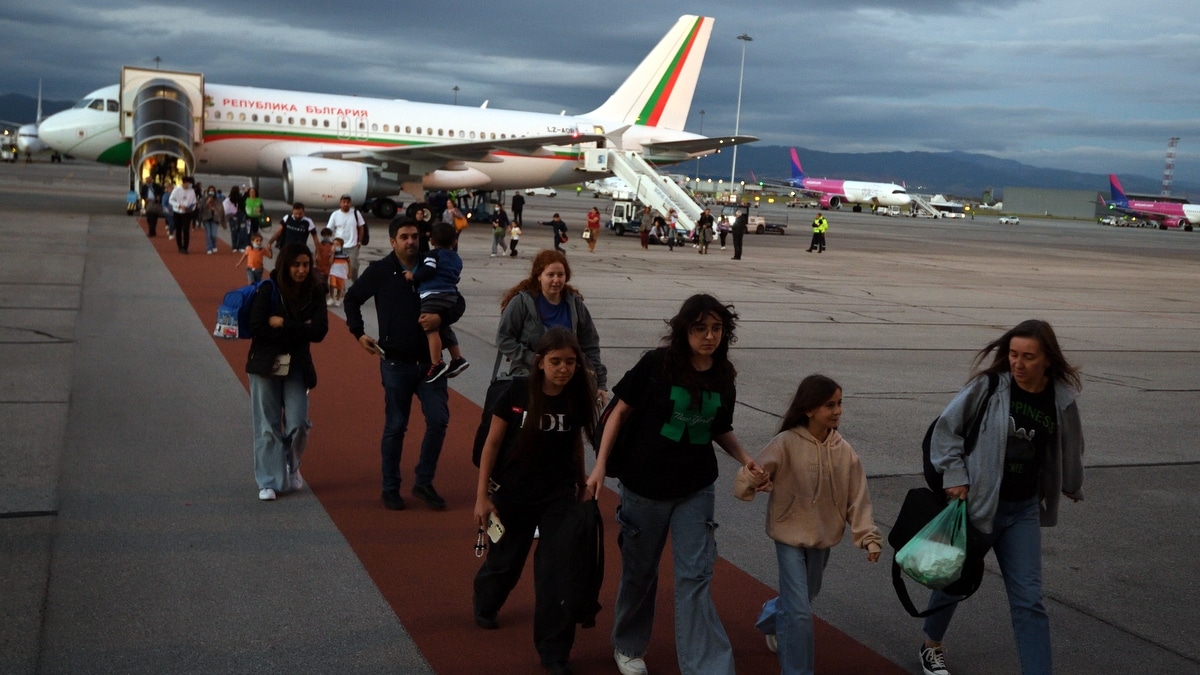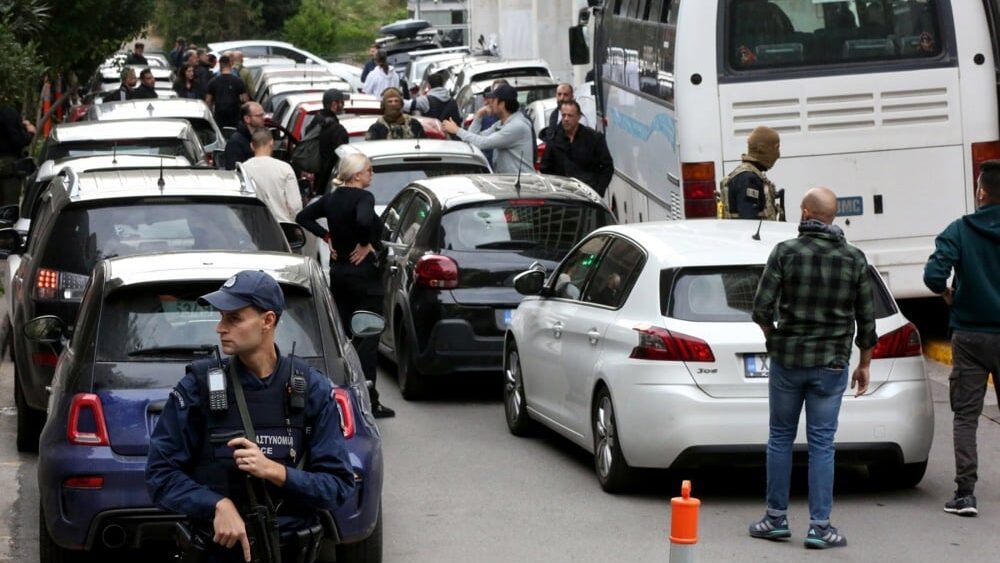Balkan States Plan Evacuations from Lebanon amid Military Escalation
Source: Balkan Insight

People arrive after their evacuation from Beirut, at Sofia airport, Bulgaria, September 30. Photo: EPA-EFE/VASSIL DONEV.
Governments across the Balkans have scrambled to put together evacuation plans amid increased violence and fears of a wider war in the Middle East this week, as Israeli attacks on Hezbollah targets in Lebanon continued and Iran hit Israel with aerial strikes.
In Bulgaria, the government has so far organised two evacuation flights to Sofia for its citizens . The first arrived on September 30 carrying 89 passengers, while the second landed on Tuesday with 80 passengers.
According to the Foreign Ministry in Sofia, there are 400 Bulgarian citizens in Lebanon but fewer than half of them have applied for evacuation.
“The situation is very dynamic and very dangerous,” Transport Minister Krassimira Stoyanova told Bulgarian media.
On Thursday, Bulgaria’s Foreign Ministry called on all Bulgarian citizens in Iran to leave the country. It’s not clear how many Bulgarians are currently residing in Iran.
Serbia’s ambassador in Beirut, Milan Trojanovic, on Thursday recommended Serbian citizens who live in Lebanon to move to more secure areas or to leave the country.
“We have no insight into which of our citizens are coming and going from Lebanon, but now we are making a list of our citizens as well as a list of those who would evacuate,” Trojanovic told TV Kurir.
Trojanovic on Wednesday told Radio Free Europe that about 115 Serbian citizens and about 50 to 60 members of their immediate families are registered at the embassy in Beirut.
Serbia has made no announcement about its citizens in Iran so far.
Croatia has also urged its citizens in Lebanon, where about 150 Croatian passport-holders reside, to leave the country.
As of Thursday, 14 people had asked for help in leaving.
The Foreign Affairs Ministry “is monitoring the situation in Lebanon and closely cooperating with the consular services of other EU member states, as well as the European External Action Service,” the ministry told BIRN.
The ministry issued a warning as far back as August 6 recommending that people leave Iran or avoid travel there.
A transport aircraft from Greece departed on Thursday for Lebanon transferring 60 Greek and Greek-Cypriot citizens who wished to leave.
According to the Greek public broadcaster ERT, some 3,500 Greeks live in Lebanon. Two more aircraft are on standby, while the Greek Navy has also deployed units capable of transporting evacuees.
Turkey has nearly 20,000 citizens who reside in Lebanon.
“In coordination with relevant institutions, alternative plans have been prepared for the evacuation of our citizens by sea or air from Lebanon,” the Foreign Ministry said on Tuesday.
“Guidelines for the evacuation of citizens of third countries via Turkey have also been identified, and necessary preparations are underway,” the ministry added.
Ankara has not announced any evacuation plan for its citizens living in Iran.
Bosnia and Herzegovina said that so far only two Bosnian citizens have asked for help to leave Lebanon since Israel started its incursion.
According to the Bosnian embassy in Amman in Jordan, which covers Lebanon, the two are a mother and daughter.
“The embassy is working to help the citizens,” Satko Bitanga, ministerial adviser at the embassy, told Radio Free Europe.
The embassy said six more Bosnian citizens are also in Lebanon, but they have not asked for evacuation.
According to the Bosnian embassy in Tehran, all Bosnian citizens in Iran, including several families, sportspersons and students, are safe and have not asked for evacuation.
North Macedonia’s Foreign Ministry said no one thus far has used their SOS telephone line to ask for help, and did not say how many citizens are in Lebanon and Iran.
But it urged those who are there to adhere to safety instructions given out by local authorities and reduce their movement to a minimum. It also warned people against travelling to Lebanon and Iran, as well as Israel.
The Ministry “will continue to monitor the situation in Lebanon, Israel, Iran and the region and inform our citizens in a timely manner,” it said.
In Montenegro there is still no official data about whether the country has citizens residing in Lebanon and Iran and whether the country plans to evacuate them. The Foreign Ministry did not respond to BIRN’s queries by the time of publication of this article.
The foreign ministries of Albania and Kosovo have also not replied to BIRN’s inquiries.
The original article: belongs to Balkan Insight .




